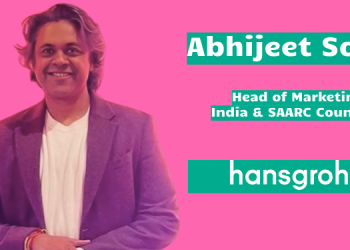The year 2024 has been transformative for the Indian real estate sector, especially in how marketing strategies have evolved with changing consumer demands and technological advancements. With India’s real estate market poised to surpass $1 trillion by 2030, the industry’s focus on innovative and customer-centric marketing approaches has intensified. From using AI-driven insights to virtual, immersive experiences, the industry has taken up the new trends in which the selling and presentation of properties is now different. Let’s dig deeper into the outstanding marketing trends that defined the real estate landscape in 2024.
- Virtual and Immersive Property Tours
The most important innovation in 2024 is the acceptance of Virtual Reality (VR) and Augmented Reality (AR) technologies in property marketing. As buyers expect convenience and transparency, the real estate developer has embraced virtual property tours in an immersive way to show their projects to potential buyers.
For example, in cities such as Mumbai, Bengaluru, and Hyderabad, top developers have now started providing 360-degree virtual walkthroughs for customers to experience a property from anywhere. According to PropTech Insights, a report states that 60% of homebuyers in Tier 1 cities undertook virtual tours before site visits, thereby reducing the time taken for decision making by nearly 20%.
This trend has proved to be very beneficial for the Non-Resident Indians (NRIs) intending to invest in Indian properties. Platforms equipped with VR tools make it possible for NRIs to assess properties without being bound by geographical constraints and thereby increase their confidence during the purchase process. It translates to improved lead generation as well as a broader base of buyers for developers.
- AI Driven Marketing Personalization
The power of Artificial Intelligence in revolutionizing real estate marketing cannot be overstated. The year 2024 would definitely see AI tools work profoundly in analyzing customer behavior, preferences, and patterns in purchasing to deliver tailored marketing strategies. Developers have started walking away from the usual traditional one-size-fits-all campaign to highly personalized ones.
For example, now AI algorithms segment audiences on the basis of income, lifestyle, and location preferences; hence, communication is targeted. A homebuyer looking for premium villas in Pune will see specific ads highlighting exclusive gated communities with modern amenities.
Chatbots, powered by AI, have revolutionized customer engagement. Platforms now employ intelligent chatbots to address queries in real time, suggest properties based on user inputs, and even schedule virtual tours. Such developments have resulted in a 40% increase in customer engagement on real estate platforms and converted more inquiries into sales.
- Digital Content Marketing Comes of Age
Content marketing became the bedrock of campaigns for real estate in 2024. Trust-building, educating potential homebuyers, and keeping them engaged have been achieved with high-quality, informative content.
Developers are moving towards varied content formats, which include:
- Educational Blogs: Articles on topics like home loans, investment trends, and government incentives (e.g., PMAY) have attracted buyers seeking reliable information.
- Video Marketing: Videos of project launches, construction updates, and neighborhood overviews have received high reach on YouTube and Instagram Reels.
- Success Stories: Testimonials from happy buyers have given credibility to the marketing efforts of the developers.
According to a HubSpot study, businesses with video content are seeing 49% faster revenue growth compared to non-video users. Indian developers are taking advantage of this trend by making brands produce interactive videos to showcase lifestyle amenities and sustainability features in their projects.
- Social Media Dominance and Influencer Collaborations
Social media continues to dominate strategies in real estate marketing throughout 2024, providing powerful tools in platforms such as Instagram, Facebook, LinkedIn, and even YouTube Shorts to reach millennial and Gen Z buyers.
Developers are using social media not only for advertising but also for storytelling. Platforms are now filled with engaging content about project features, lifestyle benefits, and customer journeys.
Another trend that has gained momentum is the emergence of real estate influencers and micro-influencer collaborations. Developers are collaborating with local influencers to target very niche markets, especially in Tier 2 and Tier 3 cities. For instance, a real estate company in Indore collaborated with local creators to promote a residential project, and the inquiries from regional buyers increased by 30%.
- The Shift to Tier 2 & 3 Cities
One of the most defining trends in 2024 has been the real estate boom in Tier 2 and Tier 3 cities. Residential and commercial real estate demand has seen a surge in cities like Jaipur, Lucknow, Surat, and Coimbatore, largely due to urbanization, improved infrastructure, and economic growth.
These strategies help understand more these emerging markets. A developing economy is focusing on building with regional languages, with more culturally relevant campaigns that localize digital ads to capture minds from smaller cities. Such efforts are now optimizing even ads for affordable housing in Lucknow, which run within a Hindi-language campaign based upon what may appeal to the localized mind-set of the buyer.
Industry reports indicate that 40% of new residential launches in 2024 took place in Tier 2 and 3 cities, which is a reflection of the importance of this segment in the overall market.
- PropTech Integration and Data Analytics
The advent of PropTech in India has fundamentally changed real estate marketing. Data analytics tools are now being used to track user behavior, assess market trends, and refine marketing campaigns.
For example, analytics are being used by platforms to give developers actionable insights into buyer demographics, lead performance, and campaign effectiveness. Such insights help marketers fine-tune their strategies, thereby improving ROI by nearly 25%.
Developers are also integrating PropTech solutions into CRM systems to automate follow-ups, track leads, and measure conversion rates, thereby making marketing efforts more streamlined and data-driven.
- Sustainability and Green Marketing
Due to environmental consciousness, sustainability is an added criterion in the marketing of real estate properties. Increasingly, eco-friendly homes and commercial spaces are what most buyers require today in alignment with international sustainability standards.
Developers are using green initiatives as the primary selling point. Those projects that focus on energy-efficient designs, rainwater harvesting, and renewable energy integration are being marketed as future-ready investments. Marketing campaigns now have green certifications like IGBC and LEED as the mark of credibility.
For instance, a luxury township project in Bengaluru marketed its solar-powered homes and EV charging stations, attracting environmentally conscious buyers and leading to 20% faster inventory absorption.
Overall, the year 2024 marked the landmark period for Indian real estate marketing because of technological innovations, the changing preferences of buyers, and strategic outreach in the emerging markets. The merger of virtual experience, AI personalization, social media dominance, and sustainable messaging in communication has set the new bar for developers regarding interaction with their audience.
Moving into the future, real estate marketing in India will certainly remain dynamic and more data and customer centric. In particular, there is a potential for critical elements in its future trajectory- regional markets, immersion technologies, and sustainability. Thus, developers and marketers are sure to get ahead by continually innovating, with relentless efforts to produce value in this competitive scenario, and deliver more for the new-generation buyer.
















